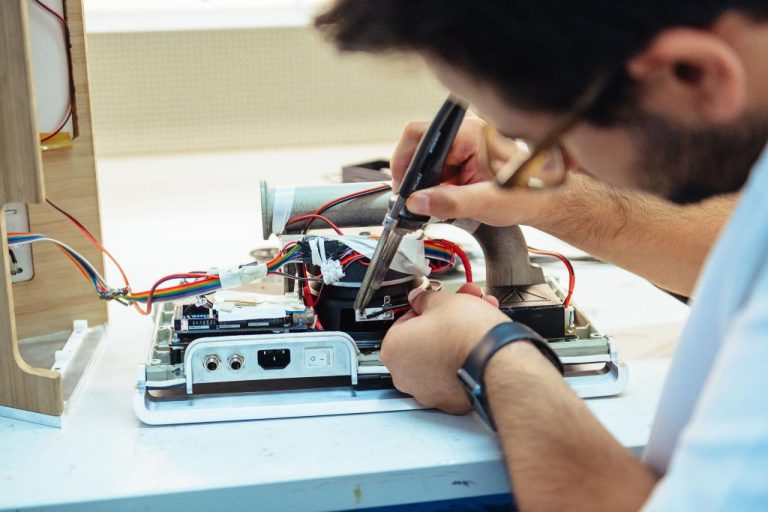Music from glass plate
Students from TU Delft’s Faculty of Industrial Design won the James Dyson Award 2020 with an audio system that uses glass to stream music and is completely recyclable. Their invention, called Ammos, produces music by using actuators to vibrate a thin sheet of glass. The glass is used to produce medium to high frequencies of 200 to 20,000 Hz. The virtually invisible actuators are placed close to the edge of the glass to exert sufficient force on it. To obtain the full sound spectrum, a small sub-woofer that produces low frequencies of 20 and 200 Hz is placed in the housing. The front panel, made of bamboo, has a haptic touch surface that allows the user to operate the product. This year 22 countries worldwide entered the James Dyson Award. Each national winner wins EUR 2,200. The TU Delft students can now move on to the next round. The grand prize of EUR 33,500 is for one international winner.

The finishing touch. (Photo: David Stegenga)
Do you have a question or comment about this article?
tomas.vandijk@tudelft.nl

Comments are closed.